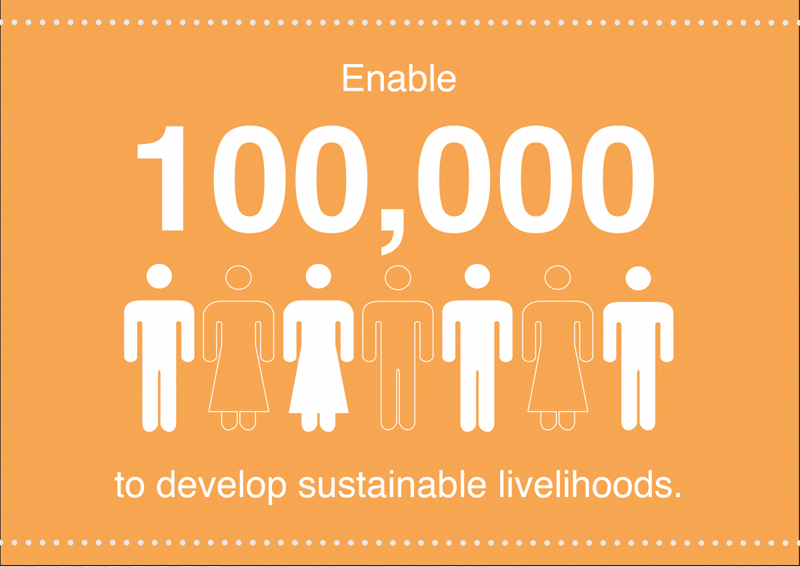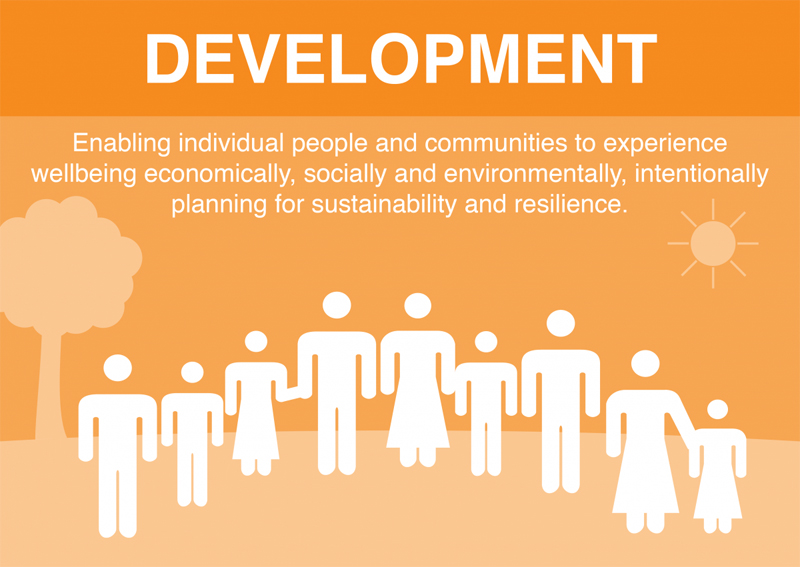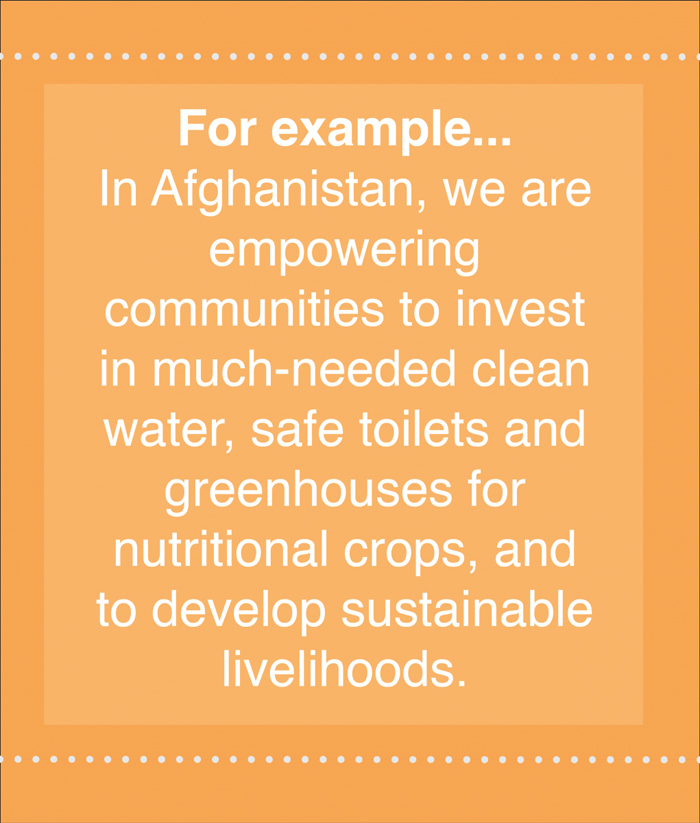Our plan to get 100,000 people out of poverty for good
Working with communities to drastically improve their quality of life is one of the goals of the new BMS World Mission strategy

What can’t you live without? A 2014 survey asked UK men and women which things they couldn’t bear to live without and got some surprising answers. The men’s number one item was a television, and for women it was a toothbrush!
Food, clean water, shelter and clothing are the basic necessities that we literally can’t live without. In the UK such necessities are within most people’s reach, but that is not the case for millions and millions worldwide.
Over the next five years, BMS has a plan to enable 100,000 of the world’s poorest people to be able to find a long-term way out of extreme poverty through our community development work. We want to help these individuals to develop sustainable livelihoods so they can attain a resilent quality of life and have the resources, skills and support to maintain it. We also want to help communities to experience greater wellbeing – not only economically, but also socially, spiritually and environmentally.

Behind the numbers: Afghanistan
A country where our development work is already transforming lives is Afghanistan. BMS worker Rory* is enabling communities to collectively improve their wellbeing through practical, life-changing projects and relationships. He says that including people from the outset in delivering these projects is incredibly important.
“The best kind of development is when the people themselves are involved in the whole process,” Rory says. “That means talking to people before we start the projects so the community is involved in discussing what is going to work and that they plan every step of implementing it.” Rory says this process ensures development projects are more likely to benefit entire communities.
This community-empowering approach is particularly effective in creating access to clean water. A village may have a pure spring nearby, but often the water has become dirty and contaminated at the points where families are able to collect it. Rory and his team first meet with the community and emphasise the impact dirty water has on their health, particularly for their children. He then works with them to ascertain the best way to get clean water from the spring into their villages. The community supplies the labour to dig trenches, while Rory and his team source the things they would not be able to easily get hold of: materials like plastic piping and taps, as well as expertise from builders and masons. “It is joining the dots between what people would like to happen and their own capacity to make things change,” says Rory.

Together, BMS, our partners and local communities ensure that clean water is readily available. Rory ensures that at least two locals know how to maintain the clean water supply so that, if a fault appears, they know how to repair it. This means that a well can be productive and safe to drink from for the long term. The cascade of positive effects that come from having access to something like clean water can be wonderful. And Rory and his team help people with more than just water. Simple, sustainable electricity supplies that Rory has helped to set up have inspired people to study in the evening, start small tailoring businesses and use minor sawmills.
These small, localised development projects can have a huge impact.
“It is possible, at community level, to help people make simple changes to their own lives that have long-lasting effects,” Rory says. By creating the conditions for a resilient lifestyle, families are in a better position to be able to pay for school fees, medical bills if one of them gets ill and cope with other unexpected expenses or disasters when they arise.
By the end of 2020 we want to have a long-lasting impact in the lives of 100,000 of the poorest, most marginalised people through our community development work. Will you stand with us, pray and give generously to help us achieve this goal?
Give to BMS today and help us as we transform one million lives worldwide.
The survey quoted was conducted by Lending Stream. You can find out more here
*Name changed
This article first appeared on the website of BMS World Mission and is used with permission.
BMS World Mission, 07/04/2016